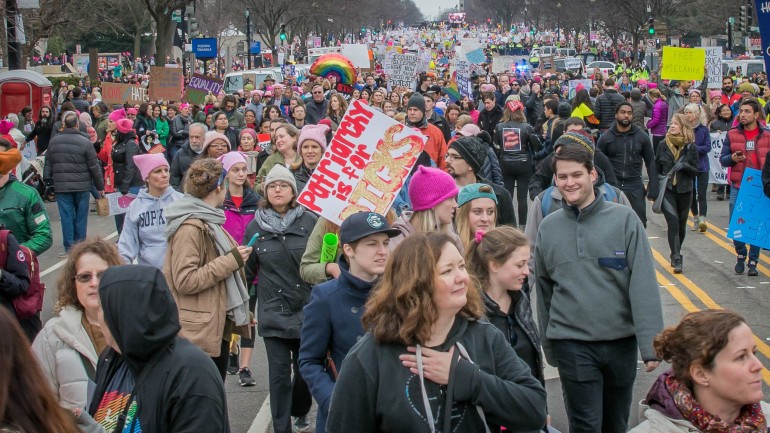
So my colleague Liana Sayer and I have an offer. If you have first-hand knowledge of sexual harassment in sociology, tell us about it. We’ll collect information and report on it.
We won’t sully reputations based on unsubstantiated rumors. But if there are serious problems going unreported, we should do something about it. We shouldn’t have to wait for someone more powerful to give us permission to speak up. Liana and I can take a little risk. And if the reputations of bad actors get damaged, that is OK — professional reputations should not be a ratchet, even if the tenure system makes it seem like they are. This has nothing to do with “witch hunts,” and everything to do with making our profession safe and productive and equitable.
As sociologists, we know that many, probably most, professional women have experienced sexual harassment in their training or careers — and we know that both the prevalence and impact of such experiences is shaped by the cultural and institutional context within which they work. In economics, a feminist initiative has taken on the “pervasive misogyny” in the field, prompted by furor over the discipline’s anonymous rumor board. In sociology we have not yet had such a catalyst.
Here’s our proposed procedure: Send an email to my gmail address (philipncohen@), tell us as much as you’re comfortable with, or simply ask us to call you. You can do this individually or in groups. We won’t discuss it with anyone at all until we’ve contacted you and agreed on how to proceed. We’ll ask you for more information if we need to. Before anything goes public, we will take steps to verify anything we can, and corroborate with witness, and so on — like the reporters do — with your permission. Then, with your permission, we will report on the findings, and name names. This will include giving the alleged bad actor a chance to respond, but only after we are satisfied that there’s something to report regardless of their response.
If we don’t hit a threshold for what we consider responsible reporting, we won’t report anything. Of course, you can tell anyone else, including journalists or the police, any time. We’re not trying to get an exclusive, we’re trying to shine a light.
We are not defining sexual harassment in advance here; there are legal and normative definitions you can follow or not. We don’t need to meet a legal standard to speak up, but we need to be responsible and ethical.
If no one contacts us and nothing comes of it, great. If instead people decide to use some other method and ignore this, that’s great. If people talk about this issue just to say how much they hate me or I’m trying to get attention or I’m acting badly, that’s probably a good thing, too. If you think we’re just virtue signaling, we’re OK with that. If you conclude, “Oh they just want everyone to know they’re against sexual harassment,” that’s great — despite its bad rap, “virtue signaling” is also how norms happen. (On the other hand, if we get swamped with messages we’ll have to decide how to triage the cases. With your permission, we might recruit help.)
We hope this will be part of elevating the discussion to the point at which we start to take steps to improve the situation more systematically. We want to see better policies and practices, which could at at the level of the American Sociological Association, our colleges and universities, or our departments. In light of the obvious retreat in federal policy toward Title IX and sex discrimination enforcement, we need to find creative, proactive responses. We hope evidence will help.
Disclaimers: We’re not lawyers, and we don’t give legal advice. We’re not doing this as a part of our job duties at the University of Maryland. If a court forces us to turn over what we have, we will. My lay understanding of the open documents rules in Maryland is that our private email is not subject to records requests to the state, but I could be wrong. If you choose to contact us, you’re trusting us to do our best, and we will do our best. We can’t promise any result (or any response at all if we don’t know what to do). If we fail and it becomes a disaster and people try to fire or sue us, I hope we’ll figure out how to win it.

Thanks for take big on this important topic! Hope that other departments will follow suit!
LikeLike